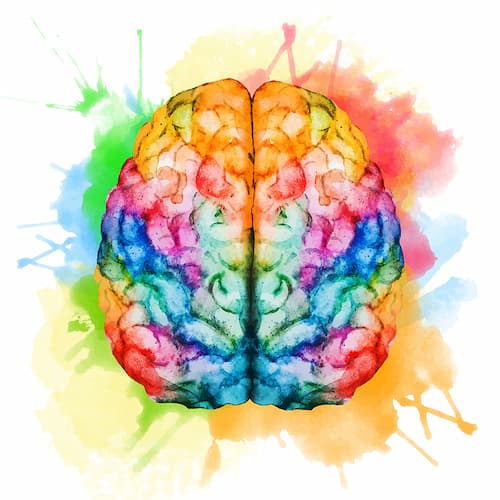Trauma
Traumatic events can have a significant negative impact on our psychological and emotional well-being. A traumatic event is one that violates our sense of safety and security, shattering our assumptions about predictability and control in life. There are many types of trauma, which can include both directly experienced and witnessed events. While many associate trauma with physical harm, trauma can also include experiences such as immigration, loss of a loved one, or relationship betrayal.
Traumatic events can be directly experienced or witnessed, and they differ from stress, which refers to ongoing psychological and emotional burdens. Coping with trauma and stress can be challenging, and therapy can be beneficial in helping individuals make sense of their experiences and learn healthy coping mechanisms.
Some trauma and stressors can result in psychological disorders that may require professional help to manage. While trauma was once thought to manifest primarily as anxiety or fear, it is now recognized that it can also present as anger, aggression, sadness, withdrawal, or apathy. Ultimately, being aware of the various forms that trauma can take and seeking appropriate help when necessary can be crucial in maintaining one’s well-being

Post-Traumatic Stress Disorder (PTSD)

Post-Traumatic Stress Disorder (PTSD) occurs when a person has been exposed to actual or threatened serious harm (such as death, injury, or sexual violence), either by directly experiencing or witnessing the traumatic event(s) or learning about such events happening to a close other. This includes repeated exposure to distressing details of traumatic events for first responders (e.g., firefighters, police officers, ER staff, psychotherapists, court judges, jury members).
Following such traumatic event(s), a person with PTSD may experience:
- Intrusive symptoms:
- Recurring, involuntary, and distressing memories, such as flashbacks
- Psychological and/or physiological reactivity to internal or external cues that resemble the trauma.
- Avoidance:
- Avoiding anything that reminds a person of the traumatic event, which can arouse distressing thoughts, feelings, or memories.
- This includes avoiding people, places, conversations, activities, or situations that trigger traumatic reminders.
- Negative changes in thinking or mood:
- Difficulty remembering certain aspects of the traumatic event (dissociative amnesia)
- Negative beliefs about oneself or the world (e.g., “I’m powerless”)
- Negative feelings such as fear, anger, shame
- Reduced interest in activities one used to enjoy
- Feeling detached from others; difficulty experiencing positive emotions.
- Arousal and reactivity changes:
- Feeling irritable or having anger outbursts
- Reckless or self-destructive behavior
- Hypervigilance
- Exaggerated startle response
- Difficulty concentrating or sleeping.
- Some individuals may experience depersonalization:
- Feeling detached from one’s body as if in a dream
- Sense of unreality regarding one’s self or body
- Sense of time slowing down.
- Some individuals may experience derealization:
- The world feeling unreal or dreamlike
- A sense of distance or distortion regarding one’s surroundings.
Acute Stress Disorder
Acute Stress Disorder is similar to PTSD in its symptoms, but it lasts for no more than a month following a traumatic event. Acute Stress Disorder is diagnosed my a medical professional when an individual is exposed to actual or threatened death, serious injury, or sexual violation, either directly or indirectly through verbal or visual exposure to traumatic details. Individuals with Acute Stress Disorder typically experience symptoms such as:

- Distressing traumatic memories, flashbacks, or nightmares
- Emotional numbing or avoidance of trauma reminders
- Altered sense of reality
- Inability to remember key details of the traumatic event
- Difficulty experiencing positive emotions
- Hyperarousal
- Irritability or concentration difficulties.
While Acute Stress Disorder shares features with PTSD, Acute Stress Disorder is distinguished by the brevity of symptoms which resolve within 4 weeks of trauma exposure. Acute Stress Disorder may develop into PTSD or resolve without progression.
Complex Trauma / C-PTSD
Complex trauma refers to chronic and repeated experiences of traumatic abuse or neglect, especially in early childhood or adolescence. It occurs in the context of close relationships and caregiving, such as child abuse or domestic violence. The trauma involves direct harm, exploitation, maltreatment, neglect, or rejection from caregivers or other responsible adults. It happens during vulnerable life stages and includes conditions of disability or disempowerment that can occur at any age.
Common symptoms of complex trauma include:
- Difficulty regulating emotions such as anger
- Difficulty controlling self-destructive impulses
- Dissociative episodes or other coping mechanisms
- Chronic feelings of guilt, responsibility, or low self-worth
- Difficulty handling stress, intimacy, or relationships
- Hopelessness, despair, or suicidality
- Physical health issues

Several therapeutic approaches have been designed to address trauma. Cognitive Behavioral Therapy (CBT) assists individuals in becoming more cognizant of their thoughts and beliefs. Cognitive Processing Therapy (CPT), another cognitive technique, enables individuals to reinterpret the traumatic event in a more helpful way. Gradual exposure therapy can sometimes be used to diminish fear related to emotional triggers stemming from a traumatic incident. Body-centered methods such as mindfulness, yoga, EMDR, and sensorimotor psychotherapy can facilitate re-establishing the connection between mind and body.
If you have encountered any of the symptoms mentioned above, you might have experienced trauma. Reach out to us for a complimentary 15-minute consultation to explore how we can assist you on your healing journey.
